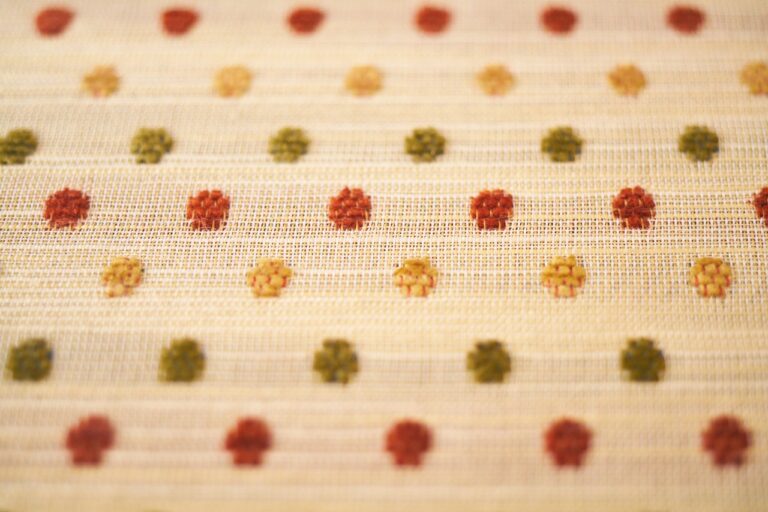Fashion and Social Impact: Brands Supporting Social Causes Through Design
Sustainable materials have become a focal point for many brands in the fashion industry. Companies are increasingly recognizing the importance of incorporating eco-friendly materials into their designs to reduce their environmental impact. From organic cotton to recycled polyester, these sustainable materials not only benefit the planet but also appeal to conscious consumers who prioritize ethical and green practices.
In recent years, we have seen a shift towards innovative materials such as Tencel, a sustainable fabric made from wood pulp, and Econyl, a regenerated nylon made from recycled materials. These materials allow brands to create stylish and functional pieces while minimizing their carbon footprint. By integrating sustainable materials into their designs, brands are not only staying ahead of the curve but also setting a positive example for the industry as a whole.
• Brands are increasingly recognizing the importance of incorporating eco-friendly materials into their designs
• Sustainable materials such as organic cotton and recycled polyester benefit the planet and appeal to conscious consumers
• Innovative materials like Tencel and Econyl allow brands to create stylish and functional pieces while minimizing their carbon footprint
• By integrating sustainable materials, brands are setting a positive example for the industry as a whole
Collaborations with non-profit organizations for social causes
Many fashion brands today are joining forces with non-profit organizations to create impactful collaborations that aim to address various social causes. Through these partnerships, designers are able to leverage their platform and resources to raise awareness and funds for important issues such as environmental conservation, gender equality, and poverty alleviation. By working hand in hand with reputable non-profits, fashion companies are not only able to make a positive difference in the world but also engage consumers in meaningful ways.
These collaborations often result in limited edition collections or exclusive pieces that not only promote the cause at hand but also appeal to the socially conscious consumer. By aligning their brand with a particular social cause, fashion labels are able to show their commitment to making a difference beyond just the world of fashion. Customers are increasingly drawn to brands that are not only stylish but also contribute to a greater good, and collaborations with non-profit organizations provide a powerful means for brands to showcase their values and connect with consumers on a deeper level.
Incorporating fair trade practices in the fashion industry
Ethical fashion is gaining momentum as consumers become more conscious about the impact of their clothing choices. Fair trade practices in the fashion industry are being embraced by brands to ensure that workers involved in the production process are treated fairly and paid a living wage. By partnering with fair trade organizations, brands are not only promoting social responsibility but also contributing to the welfare of communities in developing countries where most of the garments are manufactured.
Transparency is key in implementing fair trade practices, as consumers are increasingly demanding to know the origins of the products they purchase. Through fair trade certifications and partnerships, fashion brands are able to build trust with their customers and showcase their commitment to ethical standards. By incorporating fair trade practices into their supply chains, brands are setting a new standard for the industry and paving the way for a more sustainable and socially responsible fashion future.
What are fair trade practices in the fashion industry?
Fair trade practices in the fashion industry involve ensuring that garment workers are paid fair wages, work in safe conditions, and are treated ethically throughout the production process.
How can brands integrate sustainable materials in their designs?
Brands can integrate sustainable materials in their designs by sourcing fabrics that are eco-friendly, such as organic cotton, bamboo, or recycled materials. They can also explore innovative materials like Tencel, hemp, or Piñatex.
Why is it important for fashion brands to collaborate with non-profit organizations for social causes?
Collaborating with non-profit organizations allows fashion brands to support important social causes, raise awareness, and give back to communities in need. It also helps in promoting a positive image for the brand and building trust with consumers.
What are some examples of fair trade practices being incorporated in the fashion industry?
Some examples of fair trade practices being incorporated in the fashion industry include ensuring transparency in the supply chain, providing fair wages and benefits to garment workers, and supporting artisan communities through fair trade partnerships.







